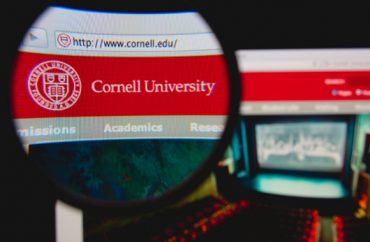
OPINION: My hope is that Cornell’s upcoming free expression theme is done in good faith and not hijacked by a DEI theme, but I’m not convinced it will do the right thing
With much fanfare, Cornell University President Martha Pollack recently announced that the theme of the 2023-24 academic year will focus on free expression, and she set up a Steering Committee for Free Expression to that end.
As a faculty member who for the past three years has fought for free expression, open inquiry and academic freedom, and has fought against the diversity, equity and inclusion bureaucracy that stifles free expression, I was elated by the news.
Yet my excitement was short lived after I read the names of the scholars chosen for the Steering Committee for Free Expression, none of whom have championed free expression at Cornell.
In fact, just the opposite. From reading about the members of the committee online, it seems to me that they have a greater interest in diversity, equity and inclusion than in free expression.
For example, member G.S. Hans, associate clinical professor of law and associate director of the First Amendment Clinic at Cornell Law School, “researches and works on issues relating to clinical legal education, with a particular focus on social justice and diversity, equity, and inclusion,” his faculty bio states.
Another member, Vice President for University Relations Joel Malina, strikes me as someone who is not at all bothered by cancel culture. He was an impediment to the uncancelation of the Lincoln bust.
Member Eve De Rosa, the dean of faculty who said she is interested in bringing “more diversity into the faculty,” ignored all of my emails questioning the harmful effects of mandatory critical race theory training and the positive effects of free and open dialogue.
Member Colleen Barry, dean of the Cornell Jeb E. Brooks School of Public Policy, is probably more interested in DEI than free expression. She has said, “[w]hether it’s environmental policy, challenges in technology or confronting historical racism that’s embedded in policy, we are teaching the students the tools toward equity.”
Member Kavita Bala, dean of the Cornell Ann S. Bowers College of Computing and Information Science, is also likely to be more interested in DEI than in free expression. She said she “hope[s] we can continue to build up so that we can create an equitable, inclusive and diverse student body.”
Kelly Cunningham, chief of staff and special counsel to the president, and Rachel Dunifon, dean of the College of Human Ecology, the remaining two members of the Steering Committee, have no online record on free expression.
On April 19, I wrote to each member of the Steering Committee for Free Expression individually, stating: “I am a faculty member in the School of Integrative Plant Science, and am very interested in free expression. Would you please send me links to your published writings on the subject so I can keep up to speed on Cornell’s new Free Expression theme?”
It’s almost mid-May. None of them have responded.
In order to bring experts on free expression to Cornell, I have suggested to the Steering Committee on Free Expression that they invite Jordan Peterson, Michael Shellenberger, Dorian Abbot, and alumnus Gad Saad to speak about free expression, and they have all agreed to come if asked.
My hope is that Cornell’s upcoming “free expression” theme is done in good faith and not hijacked by a DEI theme, but I’m not convinced it will do the right thing.
In 2017, the American Council of Trustees and Alumni awarded President Pollack the Heroes of Intellectual Freedom Award for being an outspoken supporter of free expression and for urging faculty to take more intellectual risks and not to worry about reprimand.
However, since the killing of George Floyd, things have changed, and Pollack has promoted the illiberal DEI philosophy at Cornell.
The American Council for Trustees has pointed out that the university is struggling to protect free expression and intellectual diversity on campus, placing 154th out of 203 colleges in FIRE’s College Free Speech Rankings.
Randy Wayne is an associate professor in Cornell’s School of Integrative Plant Science. His website is Randy Wayne’s World.
MORE: Here’s why, as a professor, I fight against critical race theory and DEI at Cornell
IMAGE: Shutterstock
Like The College Fix on Facebook / Follow us on Twitter

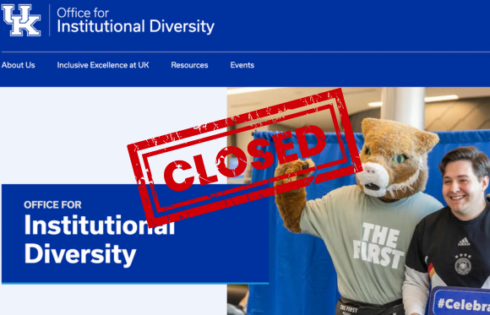
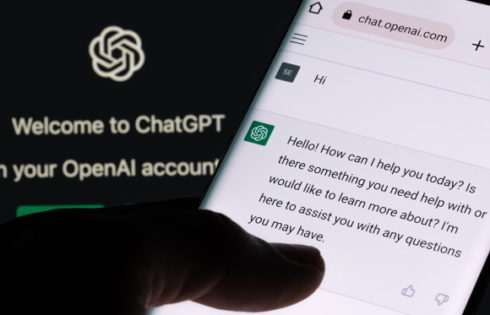
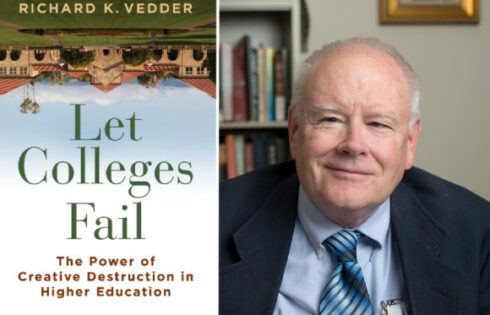
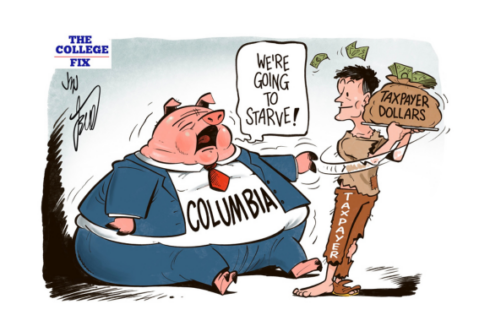
Please join the conversation about our stories on Facebook, Twitter, Instagram, Reddit, MeWe, Rumble, Gab, Minds and Gettr.